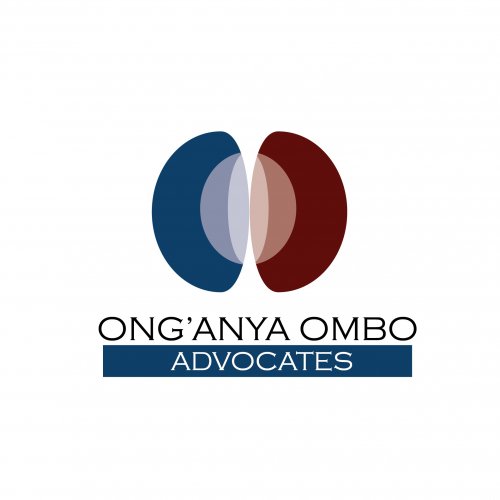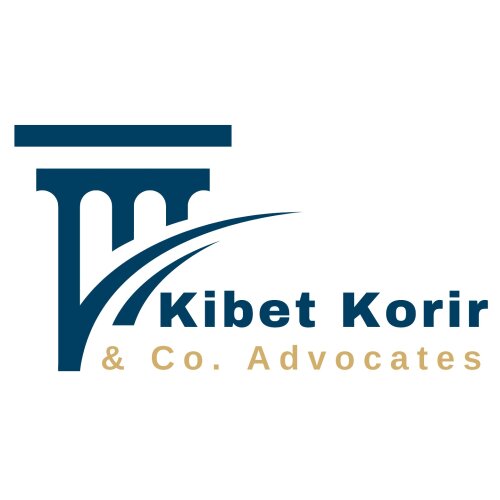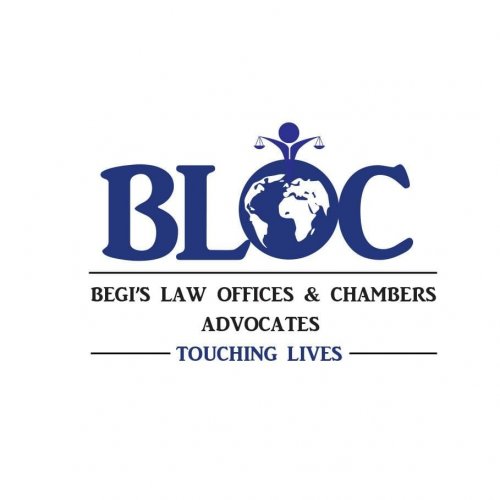Best Gaming Lawyers in Kenya
Share your needs with us, get contacted by law firms.
Free. Takes 2 min.
Or refine your search by selecting a city:
List of the best lawyers in Kenya
Legal guides written by Adroit Law LLP:
- Kenya Launches Digital Nomad Visa: A Gateway for Remote Workers
- Navigating the Payment System License Maze in Kenya
- Navigating the Complexities of Mining Licenses and Permits in Kenya: A Look into Artisanal and Large-Scale Operations
About Gaming Law in Kenya
Gaming in Kenya is a vibrant and rapidly growing sector, encompassing activities such as betting, casino operations, lotteries, and online gaming. The industry has seen significant growth due to technological advancements and increased internet penetration. However, this growth also brings regulatory challenges. Gaming in Kenya is regulated by the Betting, Lotteries, and Gaming Act, which mandates compliance with certain standards to ensure fairness, transparency, and protection of consumers. The Betting Control and Licensing Board (BCLB) is the main body responsible for overseeing all gaming activities in the country.
Why You May Need a Lawyer
Engaging in the gaming industry, whether as an operator or participant, may require legal assistance in several situations:
- Business Setup and Licensing: Operators seeking to establish a gaming business need to navigate complex licensing processes, where legal help can ensure compliance with local regulations and smooth the application process.
- Dispute Resolution: Individuals or businesses may face disputes related to gaming outcomes, contract breaches, or issues with payouts that require legal intervention.
- Regulatory Compliance: Staying compliant with evolving laws and regulations is crucial for operators, and failing to do so can lead to penalties. Legal counsel can help in understanding and implementing necessary measures.
- Fraud and Security Concerns: With increasing online activities, issues like fraud or cybersecurity breaches are prevalent, necessitating legal protection and risk management strategies.
- Consumer Protection: Gamers might need legal assistance to address concerns over unfair practices or if they become victims of a scam or unlicensed operations.
Local Laws Overview
Kenya’s gaming laws are primarily governed by the Betting, Lotteries, and Gaming Act, Chapter 131 of the Laws of Kenya. Key aspects include:
- Licensing Requirements: All gaming activities must be licensed by the BCLB. Operators must demonstrate financial stability, integrity, and capability to conduct gaming operations.
- Taxation: Various taxes are imposed on gaming operators in Kenya, including gaming taxes, excise duty, and corporate taxes, all of which must be adhered to avoid penalties.
- Responsible Gaming: The Act mandates measures for promoting responsible gaming and protecting vulnerable individuals, including age restrictions and setting betting limits.
- Advertising and Promotion: There are strict rules on advertising gaming services, designed to prevent misleading information and protect consumers, particularly minors.
- Penalties for Non-Compliance: Breaching gaming laws can lead to serious repercussions such as fines, imprisonment, or revocation of licenses.
Frequently Asked Questions
What type of gaming activities are regulated in Kenya?
The activities include betting, casino games, lotteries, and online gaming. Each requires specific licenses from the BCLB.
Who oversees gaming activities in Kenya?
The Betting Control and Licensing Board (BCLB) is the regulatory authority responsible for licensing and overseeing gaming activities in Kenya.
Are online gaming and betting legal in Kenya?
Yes, online gaming and betting are legal in Kenya, provided the operators have obtained the necessary licenses from the BCLB.
What is the legal gambling age in Kenya?
The legal age for participating in any form of gambling in Kenya is 18 years.
What taxes are gaming operators required to pay?
Operators must pay up to 20% wagering tax, corporate tax, and comply with other statutory deductions mandated by Kenyan law.
Can foreign companies establish gaming operations in Kenya?
Yes, foreign entities can operate in Kenya but must comply with local laws, obtain licenses, and possibly partner with local companies.
How long does it take to get a gaming license?
Obtaining a gaming license can take several months and involves thorough vetting by the BCLB.
What should consumers do if they suspect a gaming site is operating illegally?
Consumers should report their concerns to the BCLB, which has the authority to investigate and take action against illegal operations.
What measures are taken to promote responsible gaming?
Licensed operators must implement measures to prevent addiction and protect minors, including self-exclusion options and betting limits.
Is there a helpline for gaming issues in Kenya?
Yes, the BCLB provides resources and potentially a helpline to address consumer issues related to gaming activities.
Additional Resources
For further information and assistance, you can consult the following organizations and governmental bodies:
- Betting Control and Licensing Board (BCLB): The primary regulatory body for gaming in Kenya.
- Kenya Revenue Authority (KRA): For inquiries on gaming-related taxes and compliance.
- Consumer Protection Department: Part of the Ministry of Industry, Trade and Cooperatives, for addressing consumer grievances.
- Law Society of Kenya: Provides a directory of licensed legal practitioners who can assist with gaming laws.
Next Steps
If you need legal assistance in gaming matters, here are some steps to guide you:
- Identify Your Needs: Clearly define the legal issues or questions you have regarding gaming.
- Research Law Firms: Look for firms specialized in gaming law and schedule consultations to discuss your needs.
- Consult a Lawyer: Meet with a qualified lawyer to gain insights and advice tailored to your situation.
- Prepare Documentation: Gather any relevant documents or evidence related to your gaming activities or concerns to facilitate legal review.
- Work with Your Lawyer: Collaborate with your legal advisor to develop a strategy for addressing your concerns, ensuring compliance, or resolving disputes.
Lawzana helps you find the best lawyers and law firms in Kenya through a curated and pre-screened list of qualified legal professionals. Our platform offers rankings and detailed profiles of attorneys and law firms, allowing you to compare based on practice areas, including Gaming, experience, and client feedback.
Each profile includes a description of the firm's areas of practice, client reviews, team members and partners, year of establishment, spoken languages, office locations, contact information, social media presence, and any published articles or resources. Most firms on our platform speak English and are experienced in both local and international legal matters.
Get a quote from top-rated law firms in Kenya — quickly, securely, and without unnecessary hassle.
Disclaimer:
The information provided on this page is for general informational purposes only and does not constitute legal advice. While we strive to ensure the accuracy and relevance of the content, legal information may change over time, and interpretations of the law can vary. You should always consult with a qualified legal professional for advice specific to your situation.
We disclaim all liability for actions taken or not taken based on the content of this page. If you believe any information is incorrect or outdated, please contact us, and we will review and update it where appropriate.
Browse gaming law firms by city in Kenya
Refine your search by selecting a city.

















